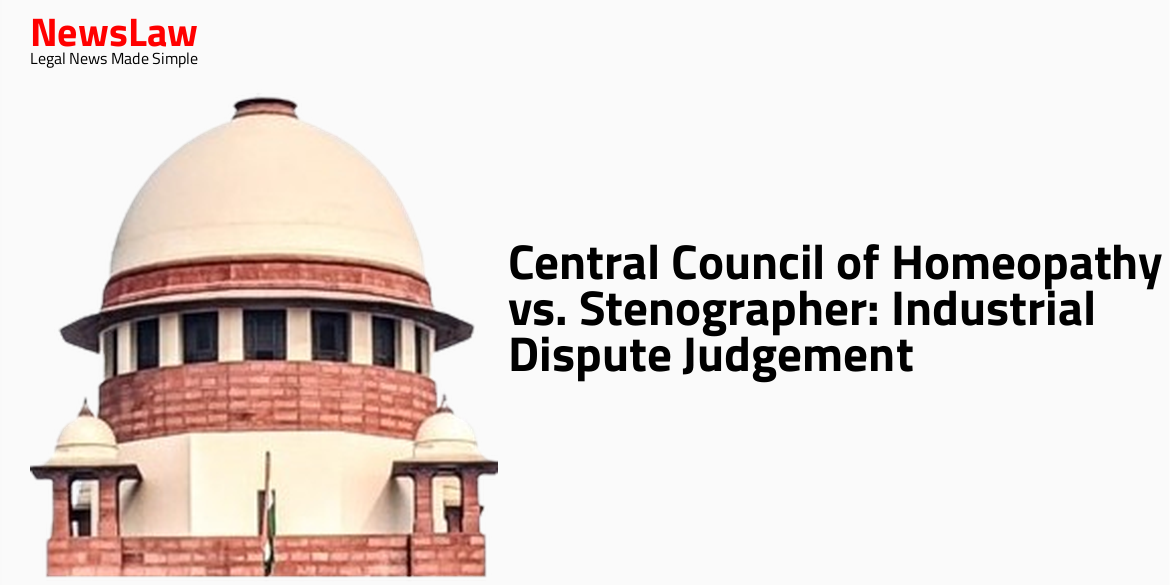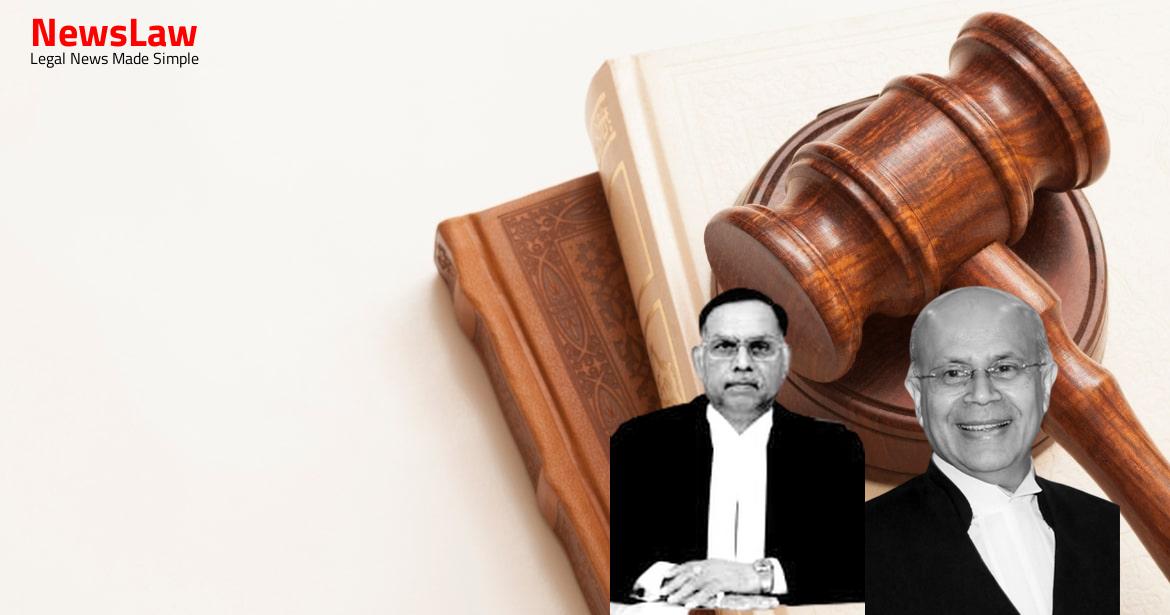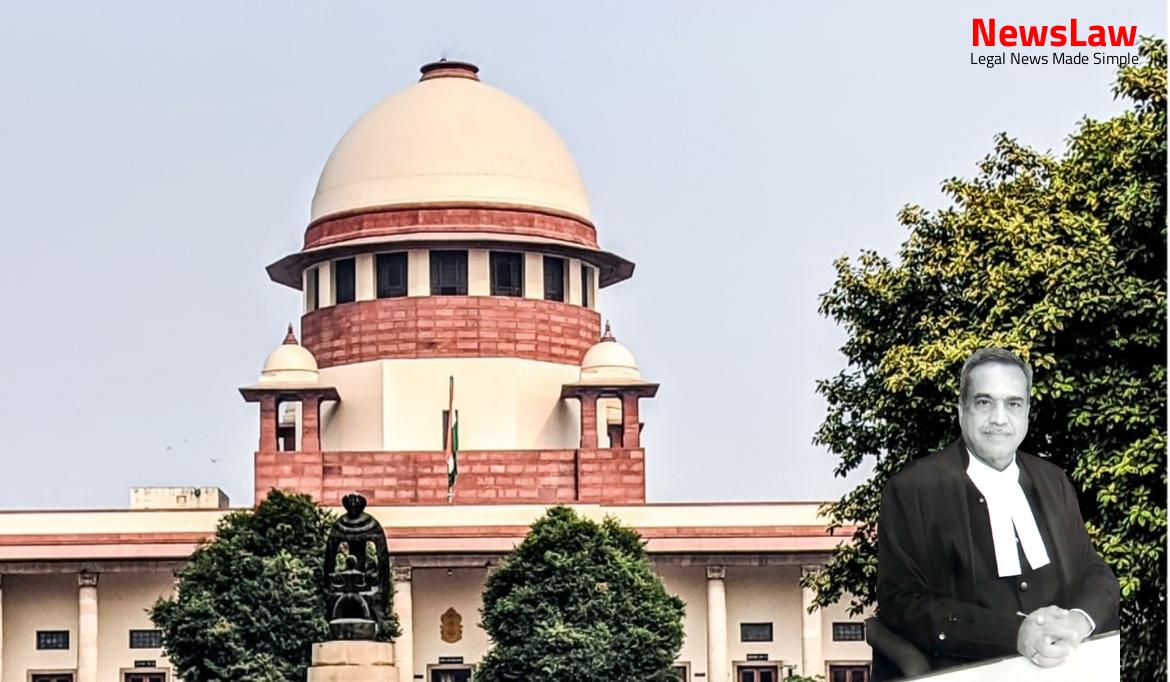The Supreme Court of India recently delivered a significant judgment in the case of Standard Chartered Bank vs. ICICI Lombard General Insurance Company. The case involved a dispute regarding a Receivables Purchase Agreement and an Export Insurance Policy. The court’s decision clarified key jurisdictional aspects in debt recovery matters, providing important insights for future cases involving similar issues.
Facts
- An appeal was filed by the respondent-Company challenging the jurisdiction of the DRT Mumbai.
- The appeal was dismissed on 03.02.2017.
- A review application was filed by the respondent-Company after withdrawing an earlier lodged appeal.
- The DRT Mumbai ultimately had territorial jurisdiction to proceed with the case.
- The review petition was dismissed by the DRT on 21.04.2018 citing the judgment in International Asset Reconstruction Company of India Limited vs. Official Liquidator of Aldrich Pharmaceuticals Limited and Others, (2017) 16 SCC 137.
- Section 5 of the Limitation Act, 1963 was held to be not applicable to review petitions filed under Rule 5A of the Rules.
- Plea to exclude time taken under Section 14 of the Limitation Act, 1963 was also dismissed by the DRT on grounds of circumventing the appeal provision.
- Writ petition was filed before the Bombay High Court on 26.04.2018, and was disposed of by the impugned judgment on 03.05.2019.
- The High Court set aside the judgment of the DRT, condoned the delay in filing the review application, and restored the review application to the file.
Also Read: Legal Analysis of Property Occupation in Insolvency Resolution
Issue
- The present appeal raises interesting questions under the Recovery of Debts and Bankruptcy Act, 1993.
- On 29.08.2008, a Receivables Purchase Agreement was executed between Standard Chartered Bank and MSTC Limited.
- Standard Chartered Bank purchased receivables from overseas buyers in respect of invoices raised by MSTC Limited against foreign buyers.
- 95% of the amount raised by the invoices was remitted to MSTC Limited.
- An Export Insurance Policy was obtained by Standard Chartered Bank and MSTC Limited from ICICI Lombard General Insurance Company.
- The Insurance Company agreed to indemnify MSTC Limited and Standard Chartered Bank in case of default in payment by foreign buyers.
- Standard Chartered Bank lodged a claim with the Insurance Company, which was repudiated on 03.03.2011.
Also Read: Legal Analysis on Physical Ability in Rape Case
Arguments
- High Court wrongly applied Order XLVII Rule 7 of the CPC in determining appeal maintainability before DRAT.
- Order XLVII Rule 7 is inapplicable under Section 22(1) of the RDB Act.
- Section 20 of the RDB Act clarifies that appeals go to DRAT from applications disposed by the Tribunal.
- Judgment in Asset Reconstruction Company of India Limited should have been correctly applied.
- Ratio decidendi in the judgment indicates only applications under Section 19 are referred to in Section 24 of the RDB Act.
- Review application, as an independent proceeding, does not fall under the term ‘application’ in Section 24 of the RDB Act.
- Counsel for the respondent vigorously opposed the contentions raised by the petitioner.
- Cited the judgment in Kamlesh Verma vs. Mayawati and Others to support the argument that a review petition is distinct from the original proceeding.
- Highlighted a contrast between Rule 5A of the Rules and Section 20 of the RDB Act regarding dismissal of review petitions filed after 30 days.
- Pointed out the absence of provisions for condonation of delay in Rule 5A, unlike Section 20, indicating a fault in the impugned judgment.
- Emphasized a significant time gap between the original application in 2012 and the frivolous application filed in 2017.
- Referenced Section 19, especially sub-section (2), to suggest that it does not limit the types of applications under the Act.
- Argued that review proceedings are integral to the original proceeding, thus invoking Section 24 of the RDB Act and Section 5 of the Limitation Act, 1963.
- Relying on specific paragraphs in International Asset Reconstruction Company of India Limited to differentiate the case at hand from precedents.
Also Read: Legal Analysis on Admissions and Document Consideration in Insolvency Case
Analysis
- The RDB Act is a special law and a complete code for the expeditious recovery of dues.
- Section 5 of the Limitation Act does not apply to tribunals, as they are not courts.
- Review petitions under Section 22(2)(e) read with Rule 5A are to be filed within 30 days before the Tribunal.
- The deemed status of recovery proceedings before the Recovery officer as a Tribunal is revoked post-amendment.
- Limitation Act provisions under Section 24 apply only to applications made under Section 19 for debt recovery by banks and financial institutions.
- Appeals against Recovery officer orders are filed before the Tribunal, not the Appellate Tribunal.
- Review petitions must be filed within 30 days as per Rule 5A; no extension of time is allowed beyond this period.
- Review petitions are distinct from original debt recovery applications under Section 19 and are for correcting errors in judgments.
- The judgment clarifies that Section 24 applies only to applications under Section 19, excluding review applications.
- The Tribunal can issue recovery certificates to the Recovery officer for debt recovery post-decision under Section 19.
- The RDB Act is a special law with specific procedures outlined for the Debt Recovery Tribunal and the Appellate Tribunal.
- The provisions of the Limitation Act, 1963, apply to applications made to a Tribunal as far as possible.
- The Tribunal and the Appellate Tribunal have the power to regulate their own procedures guided by principles of natural justice.
- An order made by the Recovery Officer in exercise of his powers is deemed to be made by the Tribunal.
- An appeal against orders of the Recovery Officer lies to the Appellate Tribunal.
- Review applications can be made to the Tribunal on the basis of a mistake or error apparent on the face of the record.
- The Act has an overriding effect over any other inconsistent law.
- Specific application fees are prescribed for different types of applications under the RDB Act.
- The Tribunal and Appellate Tribunal are not bound by the procedures of the Civil Procedure Code.
- Time limits are set for filing appeals and review applications under the Act.
- An “application” as defined by Section 2(b) of the RDB Act pertains to those made under Section 19 of the Act.
- The case of International Asset Reconstruction Company of India Limited (supra) raised the issue of whether Section 5 of the Limitation Act can be used to excuse the delay in filing an appeal beyond the 30-day period specified in Section 30(1) of the RDB Act.
- The High Court was in error in holding that no appeal would be maintainable against the dismissal of the review petition, and that a writ petition would be maintainable instead.
- The contention regarding the appellant’s late filing of an application in 2012 should not lead to a dismissal of the SLP filed under Article 136 of the Constitution of India.
- The respondent’s challenge to the jurisdiction of the DRT Mumbai was finally repelled in appeal in 2017, after which the late I.A was filed in the case.
Decision
- The appeal is allowed accordingly.
- Original names are to be used instead of Respondent No 1 or Petitioner No 1.
Case Title: STANDARD CHARTERED BANK Vs. MSTC LIMITED (2020 INSC 72)
Case Number: C.A. No.-000501-000501 / 2020



